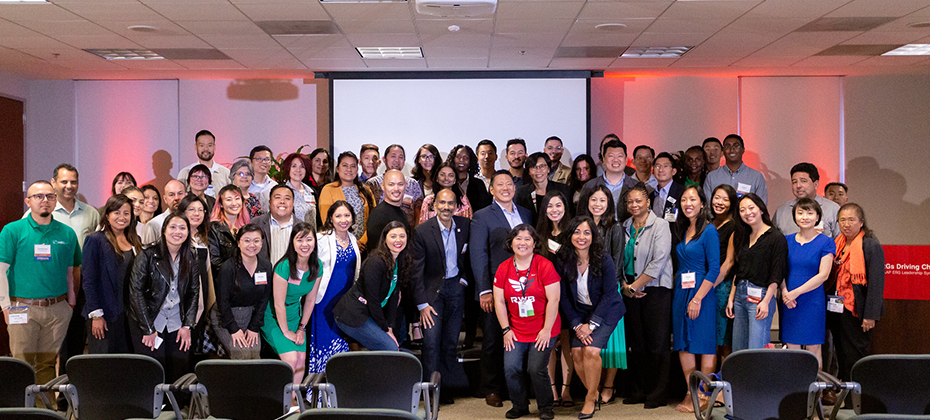
At Experian, we believe that the power of data can be used in everyday life to help consumers worldwide. And we deliver against that mission every day. As the amount of data in the world continues to grow exponentially, the opportunity to harness the power of that information to improve the lives of people around the world grows with it. Experian is uniquely placed to fulfill that mission – we are empowering both individuals and businesses around the globe by putting them in control of their data, and their futures. Our latest Corporate Responsibility Report highlights the very real, tangible impact our company has achieved, enabling more than 20 million people to access credit and other essential services. Through our core products and services – and the introduction of new alternative data sources such as utility and rental data – Experian is adding value to societies around the world, increasing choice, transparency, and competitiveness in economies, and improving financial inclusion, helping those access mainstream financial products, who have previously been unable to. In South Africa, we launched The GeleZAR app. Developed through our social innovation programme, the app uses mobile data to enable unbanked people to improve their credit profile, helping them to access they credit they need to build their businesses and achieve their goals. In Brazil, we’re reaching those living in some of the remote parts of the vast country who don’t have access to our online services. Our Serasa Itinerant truck and boat reached more than 100,000 in 44 countries in its first year, helping consumers to view their credit scores for the very first time and learn how to manage their file, build their history and manage their debts successfully. In the USA, we introduced what we believe is a significant game changer to the way millions manage their finances. Experian Boost allows people, for the very first time, to add positive payment history directly to their file to improve their score. Since launch in March, more than 600,000 customers have boosted their score, taking control of their data in a way that has never been done before. We’re at the forefront of the battle against identity fraud. Our fraud prevention and data capabilities help both clients and consumers keep their data safe. A new service in the USA helps parents protect their children from identity theft and we’re helping older people in the UK to recognise and tackle fraud. Our roots are in providing credit information and assessing lending risks. But we are much more than that. We are creating new opportunities by connecting businesses and consumers in new ways – and exploring how data can be used to tackle societal challenges around the globe. In doing so Experian is supporting businesses grow, people prosper and communities thrive, and helping shape a better tomorrow.

As part of Experian’s commitment to the value of Employee Resource Groups (ERG), we recently hosted the National Association of Asian American Professionals (NAAAP) ERG Leadership Symposium, ERGs Driving Change at our Costa Mesa headquarters. ERGs are a proven strategy for organizations to advance a diverse and inclusive company culture. At Experian, we believe the culture of inclusion also cultivates and advances innovation with the added diversity perspective that strengthens the community of professionals and ideas within the company. We were proud to host the 13th ERG one-day training program that was organized by the NAAAP to help companies and employees advance their ERG experience and learn how ERGs are change agents to enhance productivity and grow professional networks in the corporate setting. Speakers represented companies leading their industry, such as Bank of the West, Macy’s, Anheuser-Busch, Google, Facebook, UPS, Northrop Grumman, Boston Scientific, and many more, including Experian. The symposium this year featured numerous ERG thought leaders sharing their insights across a variety of sessions and panels, including; Best Practices in Demonstrating Value, Creating Connections through ERG Leadership, What’s Next Action Plans for Your ERG, among others. Caption: Hiq Lee, President, Business Information Services for Experian, shared insights as a panelist for The Crucial Executive Role in Driving Change session. She was joined by Judy Ting, SVP, Pacific Rim Region Manager, Bank of the West, and DeAnne Aussem, Managing Director & Founder of U.S. Leadership Coaching Center of Excellence, PricewaterhouseCoopers, LLC. The panel was moderated by Farzana Nayani, NAAAP ERG Architect. All speakers provided valuable takeaways for the professionals in attendance to motivate their organizations to positively impact their company with the diversity amongst its workforce and implement strategies to leverage the power of inclusion. Specifically, the hundred-plus attendees learned more about how Employee Resource Groups and Business Resource Groups are change agents for diversity, inclusion, engagement, productivity, and connection-building within organizational settings. Justin Hastings, former Chief Human Resources Officer for Experian North America, welcomed the ERG Leadership Symposium attendees with his introductory remarks, as he shared Experian’s perspective on inclusion leading to innovation. Therefore, we asked him some questions to share his insights with us on Experian’s ERGs. 1. How is Experian creating a better tomorrow? Hastings: The consumer is at the heart of everything we do. Our product innovation is geared towards giving consumers more control over how their data can enrich their lives. Experian Boost is a perfect example of this coming to life. Inclusion underpins our ability to innovate. The more we encourage a culture where everyone’s creativity is valued, the more we are able to innovate for consumers. Our ERGs play an important role in promoting diversity, and creating an environment where all our Experian people can bring their whole selves to work and be creative. 2. What role does The Power of YOU have in Employee Resource Groups? Hastings: We created a workplace environment where everyone is comfortable bringing their whole self to work, regardless of differences or backgrounds. We call this The Power of YOU, which creates an environment for employees to be their true selves. We advance our company culture by not only respecting the differences amongst Experian colleagues, but actively celebrating them with and through our ERGs. 3. What impact does the Employee Resource Groups have on Experian? Hastings: At Experian, inclusion is vital to the success of the company. Our ERGs provide us with a platform to be a more innovative business. Our ERGs now have around 1,000 employees actively involved across the eight current groups. They have helped create greater understanding of different cultures that are represented in our company, and they have also underpinned our recruiting efforts across diverse talent pools. This has helped us to keep evolving our employee base to be increasingly representative of the communities in which we operate, and the consumers we ultimately serve. Learn more about Experian’s Employee Resource Groups by visiting: https://www.experian.com/corporate/power-of-you.html Learn more about the National Association of Asian American Professionals (NAAAP) by visiting: https://www.naaap.org/ All photos taken by Nhan T. Nguyen.

FY19 proved to be a great year for Experian – one of our best ever. We just announced results, with organic revenue growth of 9%. But that is only part of our story. Behind the company’s success is a strategy that puts consumers first. We have looked to respond to the challenge of financial exclusion around the world, by using data and innovation to bring more people into the mainstream financial system. And we have responded to rapid digitisation of the world by helping organisations of all shapes and sizes to respond and adapt, all through the power of data. Fintech and digital disruption have revolutionised the way people engage with their finances. At Experian we help to speed up applications for credit, check for fraudulent impersonators and improve access to credit at fair and affordable rates. During the course of this financial year, we delivered some major and exciting milestones in our markets: In North America, we launched Experian Boost, an industry-first, game changing offer that is reshaping the credit landscape by putting individuals in control of their credit score. In the UK, we are introducing a range of new innovations, Ascend, Credit 3D and Experian One, which deploy our advanced analytics, predictive data and SaaS-based platforms. We were the first in our industry to be granted approval to supply Open Banking and PSD2 services by the Financial Conduct Authority and we have rolled out new services which help to assess whether loans are affordable. In Asia Pacific, we are building out our data Marketplaces with our strategic investment and partnerships with C88 in Indonesia and Jirnexu in Malaysia. This move will help to increase levels of financial inclusion in the region by improving matching to eligible credit products. In South Africa, we agreed to the acquisition of Compuscan, which will mean we are better positioned to serve the people and businesses of Africa and be an enabler of growth in consumer and business credit, identity management and financial inclusion. To sum up, the financial performance is strong. Our commitment to using data and analytics to help consumers, businesses and society at large is even stronger.


